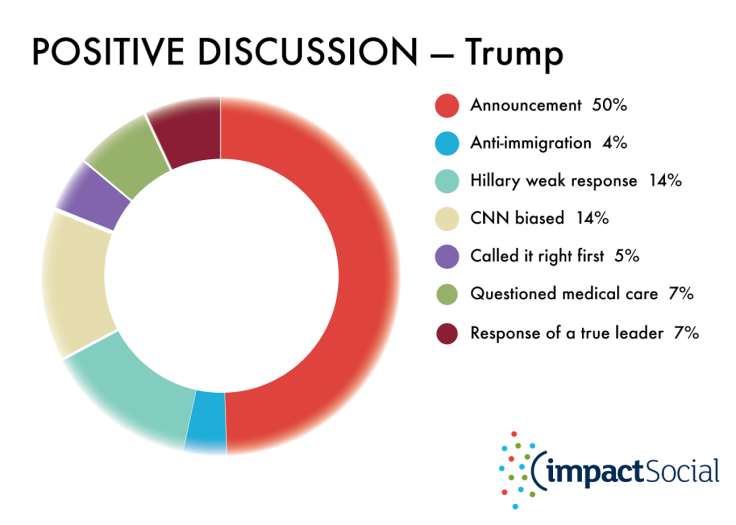Trump's bold response to the New York bomb paid off against Clinton's measured approach
Clinton was aiming for dependability, happy to paint her opponent as erratic, ill-judged and inflammatory.
Few incidents have encapsulated the difference in approach between Hillary Clinton and Donald Trump than Saturday's bombing in New York.
Trump was quick with his conclusions: "Just before I got off the plane, a bomb went off in New York and nobody knows exactly what's going on." Officially no-one knew "what's going on", or indeed if it was a bomb at all, including the authorities at the site itself. But, not for the first time, that didn't stop Trump. Always happy to insert opinions where facts might be missing, he hopped in with both feet, in the hope that boldness would carry the day; portraying himself as a tough man of action and painting Clinton as weak and, ultimately, the author of the terror brought to America. When it comes to terror and foreign policy, Trump is never far from the blame game over Benghazi.
Clinton meanwhile was going for the steadier, grown up approach: "I think it's important to know the facts about any incident like this," she almost whispered. Cautious, bloodless and slow to reach conclusions, her pitch was that the calm voice of a lifetime of DC experience and years of State Department know-how show that she has the wisdom to guide America through the horrors of domestic terrorist attacks.
She was aiming for solidity and dependability, keen to deal in facts, not supposition, and happy to paint her opponent as erratic, ill-judged and a man whose inflammatory opinions are feeding the zeal of the terrorists.
It's the clash between her faith in statesmanship and his hope in audacity. Nothing has shown their polarised approaches to the presidential race, and to politics generally, more than this.
In a sense, this is the 3am phone call debate. Who would you want to call in the middle of the night when there's an attack on America? It's Obama's gag, but forget for a moment the fact that at 3am at their age they'll both be pottering back from the bathroom. It's becoming a question of judgement and trust. When the bomb goes off, who do you want to respond?
So, which approach is winning?
The social media analysis company Impact Social investigated that very point by searching all references to Clinton alongside "bomb", "terror", "attack" and the like on social media and open news forums and did the same for Trump, looking at the flavour of the conversations in around 37,000 posts.

The good news for both candidates is that their messages landed.
The discussion around Trump was 67% positive with 50% happy with his early "bomb" call and a further 5% citing it "the right call". His attacks on Clinton's "weak" response and CNN's "bias" reporting had 14% of his positive mentions. 7% felt he showed the signs of a "true leader".
Clinton could point to good figures amongst her own positive responses – 70% backing her condemnation of the attacks and 15% criticising Trump's early messages about the bomb.

The problem lies in the scale. For one thing, Clinton's positive rating overall was only 55% (Trump's was 67%, remember). The even bigger deal, according to the data, was the "share of voice". Out of those 37,000 mentions, 25,000 were about Trump, and only 12,000 around Clinton. She's falling out of the conversation. Her more staid approach didn't press enough buttons to even generate a big reaction. Conversationally, she's a distant second in a two-horse race.
Of course, that's Trump's gamble. The odds, though closing, remain against him so he needs the drama to keep the spotlight on him. He shouts "bomb" early to draw the limelight and to portray Clinton as slow and cautious. And it worked. Noisy outrage beats calm diplomacy every time, especially on hungry TV news programmes.
Trump and his team know the electoral college is against them – and so the gamble is worth it. Clinton's caution is based on her team's idea that the election is hers to lose, a position she may live to regret.
You may have thought that Trump was something of a loose cannon in the past, and there have been indications that he's tried to be more "Presidential" recently. If this return to noisy form pays off, and the public response is favourable, then expect more off it, and a greater contrast with the calmer Clinton. He might be about to throw caution to the wind. It could be that we ain't seen nothing yet.
Jimmy Leach is a digital consultant, working on platforms and communications for governments, corporations and start-ups.
© Copyright IBTimes 2024. All rights reserved.







